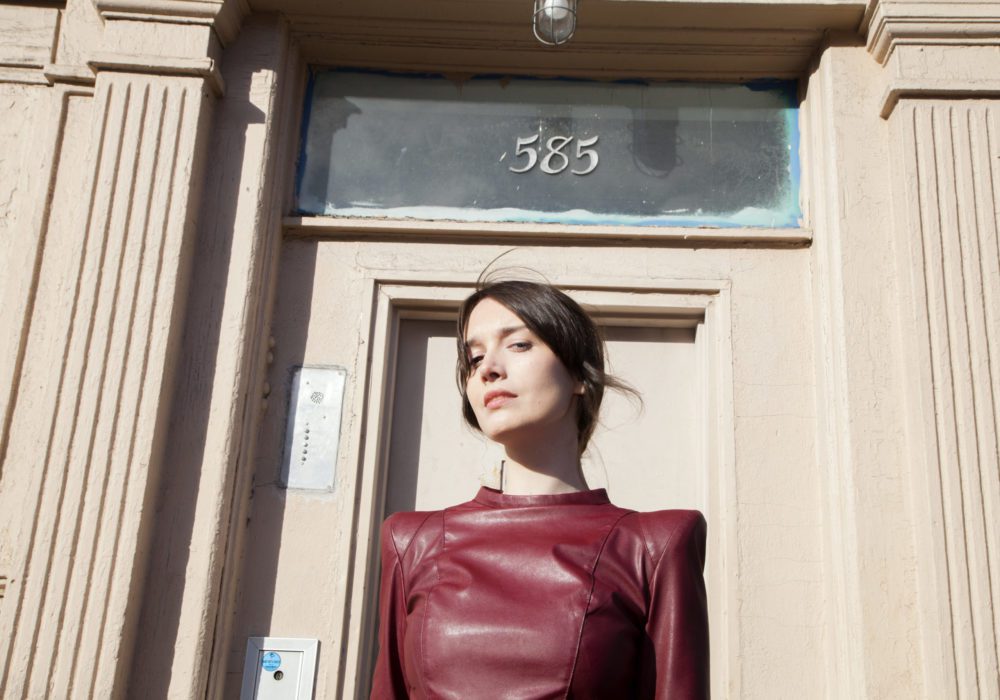

S.G. Goodman stands as a pioneer for rural voices through her captivating debut album, Old Time Feeling, with a distinct way of embracing Southern traditions while slashing through harmful stereotypes. She demonstrates Southern hospitality by delivering groceries to her elderly neighbor, and in the same breath, denounces Senate Majority Leader Mitch McConnell, asserting in her song “We Don’t Want You Mitch McConnell” that the state has “suffered” under the senior Kentucky senator’s reign. She makes it a point during a phone interview with Audiofemme to encourage her fellow Kentuckians to vote for Amy McGrath, the Democratic nominee running for McConnell’s Senate seat in the 2020 election, Goodman’s left-leaning views providing an antithesis to those who believe the South isn’t socially advanced. “The South has a bad reputation when it comes to civil rights and certain social injustices, and that’s true, we should definitely own that. But I would say that this current administration has proven that a lot of the things people want to point their finger at when it comes to the South, it’s actually everywhere, but the South is the main scapegoat,” Goodman analyzes.
Raised by a large extended family of farmers in Hickman, Kentucky, a town so small it didn’t have a stop light, Goodman was taught from a young age the values of hard work and dependability. The farmer’s daughter-turned-singer-songwriter is now using her voice to tell an all-encompassing Southern story on her glowing album, Old Time Feeling. She describes the 10-track compilation as a mix of “good, basic love songs,” like the “Tender Kind” of love she sings of on the gentle steel guitar-driven track, and “politically-leaning songs,” owning her identity as a sharecropper’s daughter who’s clever enough to know what outsiders think when they hear her thick Kentucky accent on “The Way I Talk.”
“Ultimately, that’s a pretty good picture of a lot of people’s experience in life, which is we’re human beings – we feel things and we do things,” she describes of the album. “I do write about my experience with living in a rural place, and I take that really seriously. I try to be respectful of my characters, no matter the P.O.V. that’s happening in the song, and not ever make a decision to not include something that may be a colloquialism for where I’m from, but try to be authentic through the process.”
Lyrically brilliant and stirringly poignant, Goodman strikes an intimate balance between spotlighting the plight of her home region, along with its beauty, through her music. This delicate dance is wrapped up in the album’s compelling opener “Space and Time,” touching on the lack of acceptance she felt from her community upon coming out as gay, yet acknowledging that each person she’s encountered has left a sincere impression. “I owe my life to even my enemies/The ones who have loved me/The ones who have tried/Their grips on my heart/And their grips on my mind…I never want to leave this world without sayin’ I love you,” she cries. It’s the last line of the chorus that opens the album, leaving an impact on the listener as meaningful as the one imprinted on her by her hometown. “It has a lot to do with reflecting on what makes a life, a life – the sum of all of our experiences happen to be other people and their involvement in your life. We can learn from good situations and from hard situations, but they still are a part of your life,” the singer observes. “I think sometimes when you don’t feel like you’ve said something as eloquently as you wanted, sometimes the best way is just coming out and saying the obvious. It’s not a bad way to start out an album by presenting a song that says exactly what you meant and all that you had to say.”
Goodman continues to directly express her opinions as she joins the thousands of people around the country who have flooded the streets to march for racial justice, taking to heart the lessons instilled in her as a child. “Being a farming family, the family’s work is everyone’s work,” she recalls. “A big thing that was stressed at my house was if you don’t know what to do, then you should find something to do.” Goodman channels this initiative into her music, particularly in the universal line “Be the change you hope to find” that she professes in the album’s hopeful title track, words she doesn’t merely sing, but has turned into action to create the just world she seeks.
“There are a lot of people marching in the streets in rural, mostly all-white towns across Kentucky. It has been really powerful. I’m not surprised that rural communities would take part in this because I know that there are people here that will call out injustice when they see it. It’s brought about a lot of long overdue discussions and I think there’s no getting back to normal. We’re as a society asking hard questions of ‘what do we want our world to look like?’ and we actually do have the power to change that,” she says. “How else are things going to change unless you pick up the hammer yourself?”
Follow S.G. Goodman on Facebook and Instagram for ongoing updates.




